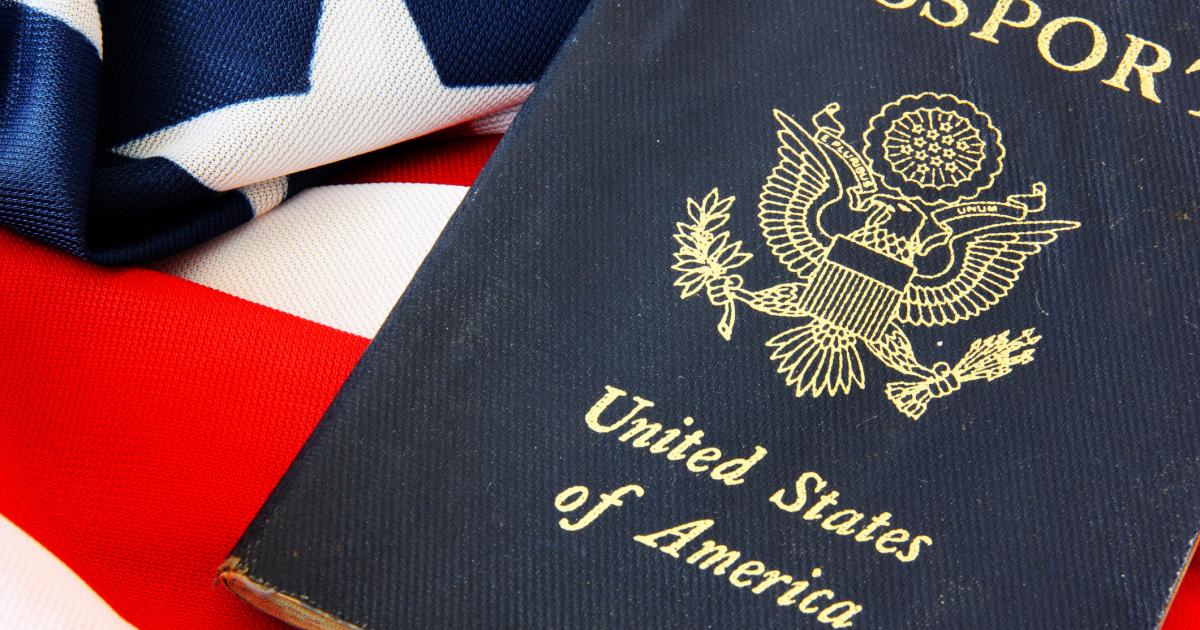There is a misinterpretation of the 14th amendment.
What’s the citizenship status of the children of illegal aliens? That question has spurred quite a debate over the 14th Amendment lately, with the news that several states—including Pennsylvania, Arizona, Oklahoma, Georgia, and South Carolina—may launch efforts to deny automatic citizenship to...

www.heritage.org
[snippet]
The 14th Amendment doesn’t say that all persons born in the U.S. are citizens. It says that “[a]ll persons born or naturalized in the United States and subject to the jurisdiction thereof” are citizens.
That second, critical, conditional phrase is conveniently ignored or misinterpreted by advocates of “birthright” citizenship.
Critics
erroneously believe that anyone present in the United States has “subjected” himself “to the jurisdiction” of the United States, which would extend citizenship to the children of tourists, diplomats, and illegal aliens alike.
But that is
not what that qualifying phrase means. Its original meaning refers to the political allegiance of an individual and the jurisdiction that a foreign government has over that individual.
The fact that a tourist or illegal alien is subject to our laws and our courts if they violate our laws does not place them within the political
“jurisdiction” of the United States as that phrase was defined by the framers of the 14th Amendment.
This amendment’s language was derived from the 1866 Civil Rights Act, which provided that
“[a]ll persons born in the United States, and not subject to any foreign power” would be considered citizens.
The 14th Amendment doesn’t say that all persons born in the U.S. are citizens. It says that
“[a]ll persons born or naturalized in the United States and subject to the jurisdiction thereof” are citizens. That second, critical, conditional phrase is conveniently ignored or misinterpreted by advocates of “birthright” citizenship.
Critics erroneously believe that anyone present in the United States has “subjected” himself “to the jurisdiction” of the United States, which would extend citizenship to the children of tourists, diplomats, and illegal aliens alike.
But that is not what that qualifying phrase means. Its original meaning refers to the political allegiance of an individual and the jurisdiction that a foreign government has over that individual.
The fact that a tourist or illegal alien is subject to our laws and our courts if they violate our laws does not place them within the political “jurisdiction” of the United States as that phrase was defined by the framers of the 14th Amendment.
This amendment’s language was derived from the 1866 Civil Rights Act, which provided that
“[a]ll persons born in the United States, and not subject to any foreign power” would be considered citizens.
Even in U.S. v. Wong Kim Ark, the 1898 case most often cited by “birthright” supporters due to its overbroad language, the court only held that a child born of lawful, permanent residents was a U.S. citizen. That is a far cry from saying that a child born of individuals who are here illegally must be considered a U.S. citizen.
It is just plain wrong to claim that the children born of parents temporarily in the country as students or tourists are automatically U.S. citizens: They do not meet the 14th Amendment’s
jurisdictional allegiance obligations. They are, in fact, subject to the political jurisdiction (and allegiance) of the country of their parents. The same applies to the children of illegal aliens because children born in the United States to foreign citizens are citizens of their parents’ home country.
Federal law offers them no help either. U.S. immigration law (8 U.S.C. § 1401) simply repeats the language of the 14th Amendment, including the phrase
“subject to the jurisdiction thereof.”

www.rodmartin.org

